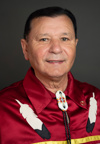QUESTION PERIOD — Ministry of Fisheries, Oceans and the Canadian Coast Guard
Rights-Based Fisheries
March 7, 2023
Minister Murray, for decades, First Nations in Atlantic Canada have been subject to extensive government surveillance, policing and subsequent criminalization when exercising their constitutionally protected treaty and Aboriginal rights to fish. As a result, many live in fear of having their traps, equipment and boats seized or being arrested, charged and convicted, as well as intimidated, harassed and attacked by officials and others.
Could you please provide an update on the measures taken by Fisheries and Oceans since the fall of 2020 to address and prevent incidents of racist violence and oppression faced by Mi’kmaw or Wolastoqey harvesters at the hands of officials and others? Have you, for example, made ongoing Indigenous cultural competency and anti-racism training mandatory for the department, which is Call to Action 57?
Thanks for that question. Racism in any of its aspects is completely unacceptable. My ministry has a number of programs to increase the sensitivity of DFO’s staff to potential racism and to ensure that that’s not something we’re bringing into the communities. There does need to be compliance and enforcement of rules, and it needs to be done in a culturally sensitive way.
Conservation is my number one responsibility as the Minister of Fisheries, Oceans and the Canadian Coast Guard because if we are not conserving our stock, we are doing a disservice and injustice to the next generations, who count on being able to enjoy the economic benefits of stock. That’s what enforcement is all about.
We work closely with the Indigenous communities to ensure that our approach is appropriate to the situation and to their culture in order to avoid any racism or perception of racism.

